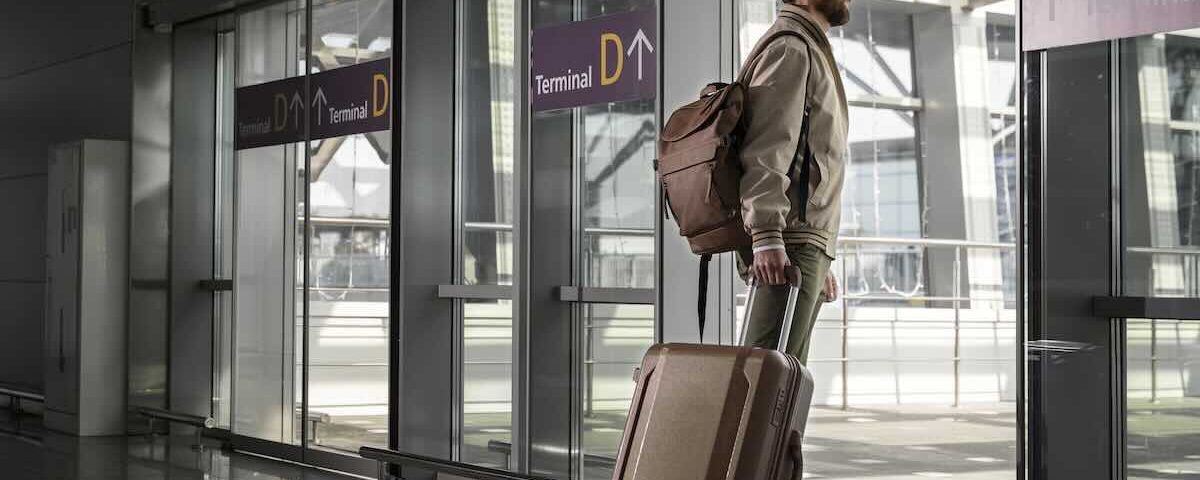
Top 5 Must-Visit Places in Thailand in November: Perfect Weather, Iconic Festivals, and Essential TDAC Travel Tips
13/11/2025Thailand continues to welcome millions of travelers each year, but recent changes to immigration enforcement have made it more important than ever to understand how visa-free entry, extensions, and travel history are evaluated. While the 60-day visa-free stay remains available for most nationalities, the authorities have introduced new internal guidelines that significantly tighten how long-term visitors, frequent border crossers, and digital nomads are screened—both at the border and at immigration offices.
These changes are not meant to target genuine tourists. If you’re visiting Thailand for a regular vacation, holding a return ticket within 60 days, and your travel history is clean, you can still enjoy your trip without stress. The new policies mainly aim to reduce “visa runs,” enforce proper long-term stay requirements, and ensure that people who plan to stay longer than 60 days are using the correct visas.
However, the landscape has shifted enough that anyone planning an extended stay should pay close attention. Below is a full breakdown of what’s happening, what the new rules mean in practice, and how to navigate Thailand’s immigration system confidently.
Visa-Free Entry: Still 60 Days, but Extensions Are No Longer Guaranteed
The standard visa-free entry remains 60 days, which is great news for tourists who want a longer holiday. Travelers with simple plans—arrive, enjoy Thailand, and leave within two months—have nothing to worry about. You can still apply for a 30-day extension at immigration, and in many cases an additional 7-day extension, making a total of up to 97 days under visa-free status.
But here’s where the change comes: the 30-day extension is no longer “automatic.” Immigration officers have instructions to evaluate each request more thoroughly. Your travel history, purpose of stay, and documentation may influence whether you receive the full extension or get declined. Some offices, like Krabi and Phuket, have already begun applying these stricter standards.
Stricter Scrutiny on Travel History
One of the most significant updates concerns how immigration evaluates patterns of travel. Previously, visa runs—crossing a border to renew visa-free stay—were tolerated to varying degrees. From now on, they can be grounds for denial.
If you’ve entered Thailand multiple times this year without going home, you may be stopped at the border and refused entry. For many travelers, especially long-stay visitors, this is a major shift. Even if you’re planning to extend inside the country, immigration officers can now deny the extension based on past travel patterns.
The key point is simple:
Your entry and extension are no longer guaranteed just because they used to work before.
Land Border Crossings No Longer Support Extensions
In previous years, it was common for travelers to cross a nearby border—such as Myanmar, Laos, or Malaysia—to reset their visa-exempt days. Under the new rules, land border entries no longer allow for a 30-day extension.
You will get 60 days total, and that’s it. No extension inside Thailand after a land entry.
This policy directly targets repetitive border runners. Anyone who relies on land crossings to prolong their stay will need to reconsider their strategy.
Immigration Offices Are Now Required to Deny More Extensions
Another major change comes from two new police directives instructing immigration offices to meet “stricter enforcement goals.” This means all offices—including smaller provincial ones—must review extension applications more rigorously and deny a certain number of requests each month. Whether fair or not, this creates a much tougher environment for people who rely on visa-free stays to live long-term in Thailand.
These targets apply both to:
- Visa-free extensions
- Non-Immigrant visa extensions (including Education, Retirement, and Business visas)
Therefore, you should expect document checks to be more detailed, interviews to be stricter, and approvals less predictable than before.
Risk of Visa-Free Stays Being Revoked
Authorities now have the right to revoke visa-free entries or even cancel existing extensions if they determine that a person no longer meets the updated criteria. This includes cases where someone may have previously abused visa-free entries, overstayed, or repeatedly performed visa runs.
This is an entirely new level of enforcement. For people who plan to stay longer than 60 days—or who have a complicated travel history—getting a proper visa is becoming a necessity rather than a choice.
Stricter Oversight of Long-Term Residents
The tightening is not limited to tourists. Long-term foreign residents are now subject to more detailed inspections. Immigration officers may check:
- Your financial documentation
- Proof of address (TM30)
- Ongoing reporting compliance (TM47 / 90-day reporting)
- Work permit accuracy
- Visa type consistency
Offices in Krabi and Phuket have already applied these more aggressive standards, and others are quickly following.
Who Should Not Worry? Genuine Tourists
If you are:
- Visiting Thailand for a normal holiday
- Staying less than 60 days
- Holding a confirmed return ticket
- Not doing repeated in-and-out entries
- Without any past overstays or suspicious patterns
…then these changes are unlikely to affect you. The system is still very welcoming to tourists whose travel plans are straightforward.
Who Should Reconsider Their Strategy?
You should not rely on visa-free entry if:
- You plan to stay longer than 60 days
- You’re doing multiple entries per year
- You rely on land border visa runs
- You live part-time in Thailand
- You don’t have strong documentation for extensions
For these cases, you should absolutely look into obtaining a proper visa in advance.
Practical Advice for Navigating the New Rules
Here’s how to stay safe under the updated system:
- Avoid depending on visa-free entries if you plan to stay longer than 60 days. Get a proper Tourist Visa or other long-term visa that matches your situation.
- Always have a return ticket within 60 days (for visa-free) or 90 days (for a tourist visa). Airlines and immigration officers increasingly check this.
- Keep your finances easily verifiable. Long-term visitors should have proof of funds ready.
- Respect all reporting requirements. TM30 and 90-day reports must be done correctly and on time.
- Limit repetitive border crossings. If you’ve done more than two in-and-out trips this year, be careful.
- If you have doubts, secure your travel documents early.
A Note About Preparing Travel Documents
Because immigration offices now scrutinize documents more closely, many travelers prefer handling their travel paperwork before arrival. A simple way to make the entry process easier is preparing your Thailand Digital Arrival Card (TDAC) ahead of time.
You can submit the application easily via services like tdac.info, which helps travelers double-check their information, correct errors, and prepare applications up to 60 days in advance. It’s not required, but travelers appreciate the convenience—especially now, when immigration is tightening procedures.
Final Thoughts: A New Era of Enforcement
These updates aren’t just stricter interpretations of old rules—they represent a real shift in Thailand’s immigration system. The goal is to encourage travelers to use proper visas and reduce the long-standing practice of living in Thailand through back-to-back visa-free entries. Everyone, from short-term visitors to long-term expats, will feel the impact.
But Thailand remains incredibly welcoming. Tourists coming for a normal holiday will still enter easily and enjoy the country as always. The only people who need to rethink their approach are those relying on loopholes or patterns that immigration no longer accepts.
If you understand the new rules and prepare properly, you’ll have a smooth and enjoyable stay in Thailand—today and in the years ahead.




